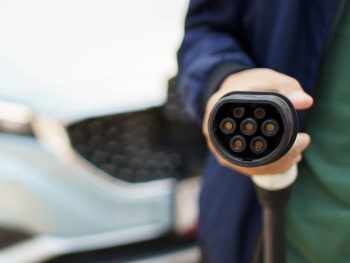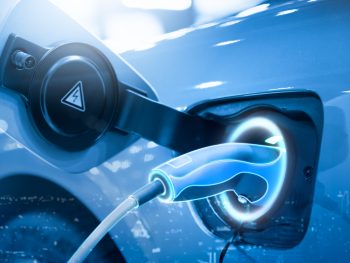UK fleet and auto sectors slam PM’s potential U-turn on 2030 ICE ban
Potential government plans to row back on the 2030 ICE ban have prompted a flood of criticism from across the fleet and automotive sectors.
The Prime Minister is expected to backtrack on key green policies this week, watering down some of Britain’s critical net zero pledges. This could include the 2030 ban on the sale of new ICE cars and vans, which may move back to 2035 in line with the EU.
The U-turn was reported by the BBC, which said it had seen documents suggesting seven core policy changes or commitments could be delayed in a speech later this week.
PM Rishi Sunak said the Government was committed to reaching net zero by 2050 – but in a “more proportionate way”. That’s despite the Government having confirmed several times in recent days that there would be no reprieve for the ICE ban, announced in November 2020.
The rollback is apparently backed by Home Secretary Suella Braverman but has been lambasted by several high-profile Tories. Tory MP Chris Skidmore, whose net zero review earlier this year warned of the need for urgent changes, said rowing back would be the “greatest mistake” for Sunak.
It’s not just Tory MPs slamming the Government though – Ford has hit out at any potential delay and warned that it could derail the EV transition.
Lisa Brankin, Ford UK chair, said: “This is the biggest industry transformation in over a century and the UK 2030 target is a vital catalyst to accelerate Ford into a cleaner future.
“Our business needs three things from the UK government: ambition, commitment and consistency. A relaxation of 2030 would undermine all three. We need the policy focus trained on bolstering the EV market in the short term and supporting consumers while headwinds are strong: infrastructure remains immature, tariffs loom and cost-of-living is high.”
Brankin also pointed out that the auto industry is investing to meet the challenges of the ICE ban announced three years ago. Ford said it had already invested £430m in its UK development and manufacturing facilities and had been planning further investments in line with the 2030 timeline.
The SMMT also warned of the impact on the automotive industry and its investment in the UK.
Chief executive Mike Hawes stressed: “Britain can – and should – be a leader in zero-emission mobility both as a manufacturer and market. To make this a reality, however, consumers must want to make the switch, which requires from government a clear, consistent message, attractive incentives and charging infrastructure that gives confidence rather than anxiety. Confusion and uncertainty will only hold them back.”
The Association of Fleet Professionals (AFP) also slammed any U-turn on the ICE ban – and warned of the impact on fleets that have made significant investments to adopt EVs.
Paul Hollick, chair, said: “Given that the motor industry and their fleet customers have spent literally billions working towards the 2030 target and take the issue of zero emissions very seriously, any major change would reflect poorly on how sincerely this administration takes both the needs of business and the environment.
“This is a crucial subject where massive investments have been made and is not just something that should be politicked in the expectation of short-term gain.
“Really, what we want to see is more help from the Government in order to meet the 2030 deadline, especially when it comes to light commercial vehicles.”
Cap HPI also said that more help would be needed to help meet the deadline.
Dylan Setterfield, head of forecast strategy, commented: “We always said that 2030 was a very ambitious target and required significant action and forward planning to make it happen. Although there has been significant progress in infrastructure development, we think we are behind the BEV penetration required to naturally reach 100% BEV being a reality by 2030 without huge intervention.”
He warned that even if the 2030 deadline remained unchanged for passenger cars, the UK could see changes to the timetable for LCV, or the majority of hybrid vehicles allowed until 2035.
Rollback on 2030 ban ‘sends wrong message’

Any delay to the 2030 ICE ban threatens future UK investment in car and van manufacturer, as well as battery supply and charging infrastructurebe
Jon Lawes, managing director at leasing giant Novuna Vehicle Solutions, has also warned of the impact of a delay to the ban.
“Any rollback in the longstanding 2030 deadline sends out the wrong message to manufacturers and drivers, and threatens future investment in the UK’s battery supply and charging infrastructure, both critical to realising zero emissions mobility.
“We’ve come a long way and can’t lose sight of the ultimate goal to reduce carbon emissions.”
Meanwhile, as with the Association of Fleet Professionals, Go Zero Charge has questioned the PM’s claims that he’s putting the UK’s long-term interests first, as reported by the BBC. Instead, Peter O’Brien, chief marketing officer, suggested the changes might be a “poorly planned pre-election challenge to Labour” as Sunak trails in the polls.
O’Brien added: “The drastic reduction in carbon emissions by banning the production of petrol and diesel cars in 2030 supports a greener and more sustainable transportation ecosystem and supports consumers, who have been hit hard by the cost-of-living crisis and unprecedented petrol prices in recent years. On the contrary, Sunak’s drastic change of course appears aimed at supporting oil companies as long as possible.”
Meanwhile, salary sacrifice firm The Electric Car Scheme said delaying the 2030 date “would be a disaster for our climate credibility”.
CEO Thom Groot continued: “If true, this begs the question of whether the Prime Minister and the Government are really interested in gripping climate change.”
And eco campaign group Transport & Environment warned that a five-year delay to the ICE ban “blows a massive hole in any serious attempt to get to net zero emissions by 2050”.
Richard Hebditch, UK director, elaborated: “The 2030 ban on the sale of new petrol and diesel vehicles, and the accompanying zero emissions vehicle mandate, is the biggest carbon-cutting measure in the net zero strategy. With many cars on the road increasingly lasting close to 20 years, shifting the phase out date means we’re likely to see millions more fossil fuelled cars well past the 2050 net zero target date. This will crash the UK’s carbon budgets.”
He also cautioned that the “sudden abandonment of long-held policy will send shockwaves across industries that we need to get greenhouse gas emissions to zero – the automotive industry being just one”.
A delay to the 2030 phase-out would send plans by car and van manufacturers, battery suppliers and gigafactories, as well as charging station providers, “up in the air again” he added.
“The future of the country and the climate deserves better.”
Finally, Jordan Brompton, co-founder and CMO of charging firm Myenergi, warned of the impact on consumers too: “The rumoured postponement of the UK’s 2030 date for phasing out new petrol and diesel car and van sales – which of course has always permitted some forms of hybrids to continue to be sold – is not good news for anyone. It weakens confidence in UK investment. Vehicle manufacturers don’t like it. Those of us who are working to decarbonise homes and transport don’t like it. And families that cannot afford a new car won’t like it, because they may have to wait even longer to buy a cleaner and cheaper-to-run electric car in the used market.”


